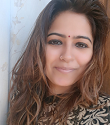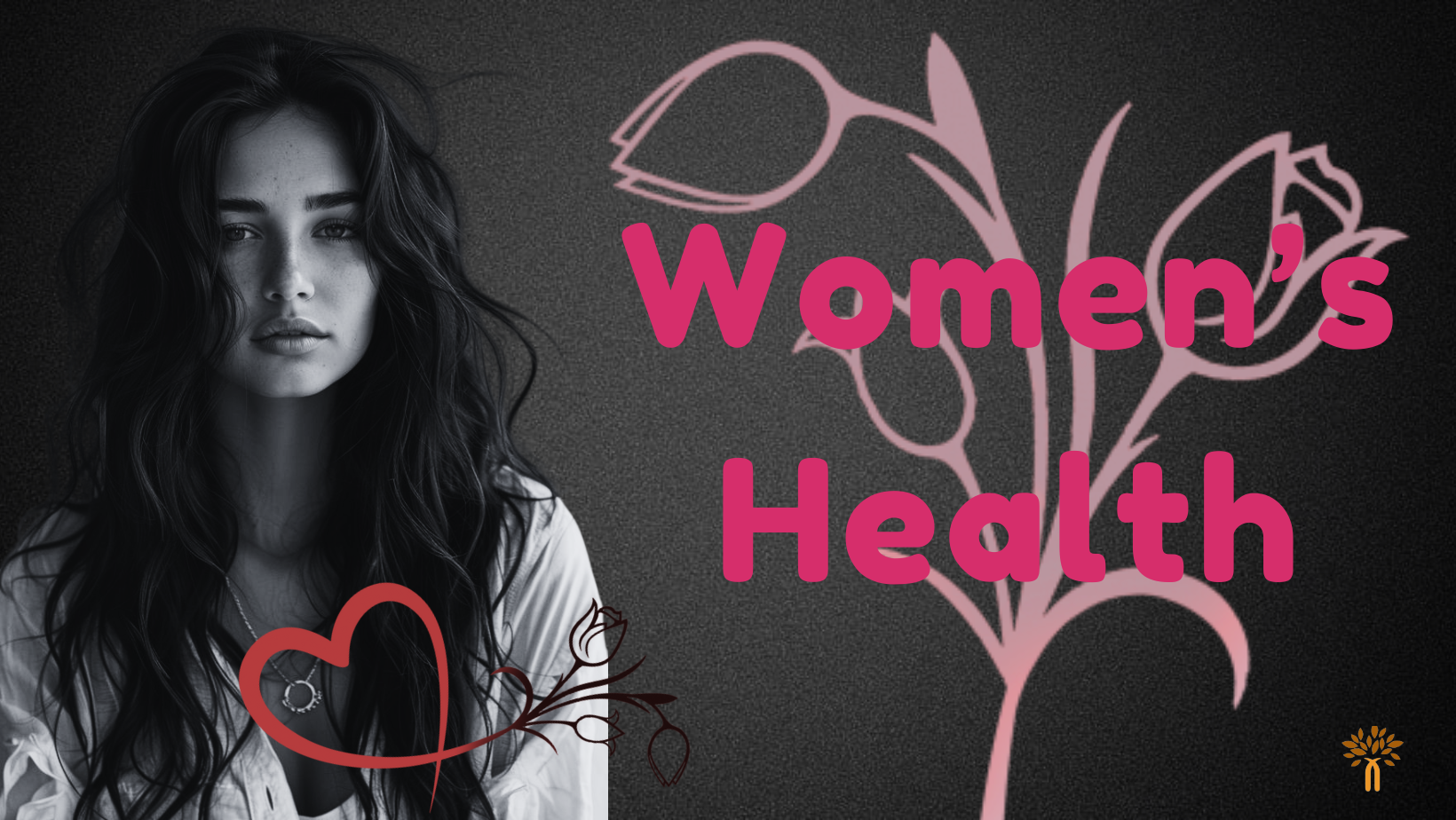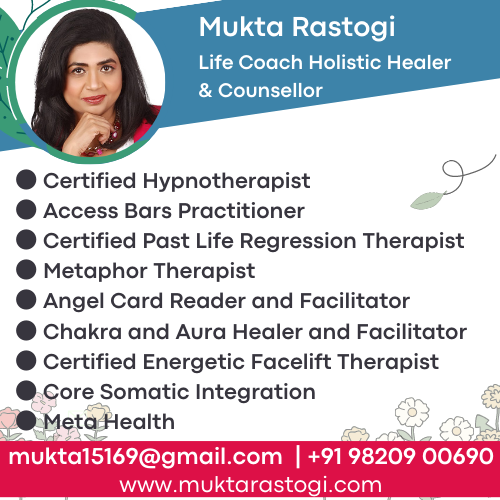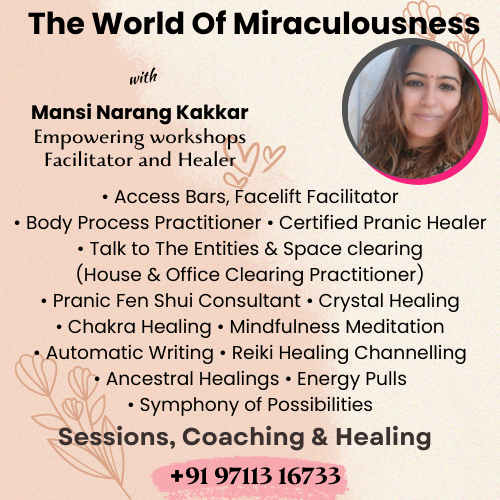Alternative Therapies
- Alternative Medicine
- Access Bars
- Access Body Processes
- Access Consciousness
- Access Energetic Faclift
- Acupressure
- Acupuncture
- Akashic Records
- Ancient Magnetism
- Angel Healing
- Aromatherapy
- Aura Reading
- Ayurveda
- Bach Flower Remedies
- Blueprint Numerology
- Breathwork
- Chakra Healing
- Cosmetic Acupuncture
- Crystal Healing
- Cupping Therapy
- Divine Healing Hands
- Distance Healing
- Emotional Freedom Technique (EFT)
- Energy Healing
- Energy Medicine
- Ergonomics
- Family Constellation
- Face Reading
- Fengshui
- Gaiadon Heart
- Geomancy
- Heal Your Life
- Graphology
- Holistic Solutions
- Holy Fire Reiki
- Homeopathy
- Ho'oponopono
- Humkara with Haleem
- Hypnotherapy
- Inner Child Therapy
- Intuitive Reading
- Jikiden Reiki
- Jin Shin Jyutsu
- Karuna Reiki
- Karmic Healing
- Lama Fera
- Lenormand Cards
- Light Language Healing
- Law of Attraction
- Manual Therapy
- Matrix Reimprinting
- Metaphor Therapy
- Meditation
- Mediumship
- Melchizedek Method
- Merlin Trinity Healing
- Merkaba Healing
- Money Reiki
- Motivational Counseling
- Mudra Healing
- Nakshatra Energies
- Naturopathy
- Neuro Linguistic Programming (NLP)
- Numerology
- Oracle Cards
- Panchakarma (Ayurveda)
- Panchkarma Holistic Healing - Mind Control
- Past Life Regression
- Pendulum Dowsing
- Physiotherapy
- Pranic Healing
- Pranic Psychotherapy
- Pythagorean Numerology
- Quantum Touch Healing
- Pyramids
- Redikall Healing
- Reiki
- Rudraksh
- Runes
- Soul Plan Reading
- Sound Healing
- Star Magic Healing
- Space Clearing
- Sujok therapy
- Tarot
- Theta Healing
- Twin Flame Healing
- Twin Hearts Meditation
- Unani Medicine
- Yoga
- Wicca
- Womb Healing
Diseases & Conditions
- Acne & Pimples
- Allergies
- Arthritis
- Asthma
- Behavioural Disorders
- Cancer
- Dandruff
- Diabetes
- Emotional Problems
- Gallstones
- Gastritis
- Hairloss
- Heart Diseases
- Hormonal Problems
- Hypertension
- Immune Disorders
- Infections
- Infertility
- Jaundice
- Kidney Disorders
- Liver Disorders
- Menstrual Disorders
- Migraine
- Neck & Back Pain
- Obesity
- Osteoporosis
- Peptic Ulcer
- Prevention
- Prostate Problems
- Psoriasis
- Sexual Dysfunctions
- Sinusitis
- Sleep Disorders
- Skin Diseases
- Stress
- Thyroid Disorders
- Ulcerative Colitis
- Urinary Infections
General Wellness
Women's Health & Fitness In Surat

Ms. Mukta Rastogi
Mukta Rastogi is a Life coach, Counsellor, Certified Hypnotherapist, Access Bars Practioner, Certified with Dr Brain Weiss in Past Life Regression, trained in Metaphor Therapy and Angel Card Reader. She is Proactive and dynamic spiritual healer.

The World Of Miraculousness with Mansi Narang Kakkar

Mansi Narang Kakkar is an Access Consciousness Bars N Facelift Facilitator And Practitioner, A Certified Pranic Healer, Talk to the Entities Practitioner, Body Process practitioner, Symphony of Possibilities Practitioner, Reiki Healer, A Psychic n a medium.

Women's Health & Wellness

BREAST CANCER AWARENESS
Identifying Breast Cancer
Awareness of any change while looking and feeling one's breasts is an essential way of identifying breast cancer in its early stage and arresting any further harm. Any alteration to how they feel and look requires a consultation with a doctor. Alteration of breasts occurs periodically all through the monthly cycle and throughout a woman's lifespan. Other factors like menarche, age, pregnancy, breast feeding, hormone replacement therapy (HRT) and menopause affect and alter breast development. Taking the time to study one's breasts and knowing what is normal will benefit in being aware of any alterations in order to stop any further damage to the body.
The best way to examine one's breasts is in a shower using either soapy water, talc or a moisturizer which will help move hands more smoothly over the breasts. For women that are big in build, lying down would make it easier to palpate breasts
How and what to check for in breasts?
- Physical characteristics like puckering, redness or inflammation, or dimples would be noticeable while standing in front of a mirror
- Check for nipples that look drawn in or are changing direction
- Look for discharge from nipples while gently squeezing breasts and any kind of rash that occurs around the nipples
- Be aware of any persistent ache or throbbing pain in the breast or in the armpit area that is not due to the monthly period
- Palpate with hands to feel for any swelling, lumps or bumps that feel unlike the rest of the breast tissue
- Also check for swelling and lumps surrounding the breasts in the area of the armpits, below the collarbone and upper arms.
When to do a breast check?
An ideal check would comprise of palpating breasts every few days as changes occur around the time of monthly periods and might be misleading. Knowing how breasts feel around that time and at other times would set the benchmark for discerning unusual changes. For menopausal women a breast exam should be conducted by themselves as often as possible to check for unusual feeling lumps.
Devices to check breasts
Though there are many breast self exam kits available in the market over the counter, it is still advisable for women that qualify for examination to go for a mammogram if they detect any signs or symptoms like lumps in the breast or seek advice from a GP who might refer the case to a breast clinic that specializes in the detection of a breast condition. A biopsy or ultrasound would help detect or rule out the possibility of a serious condition.
Five steps to breast cancer awareness
- Awareness of what should look and feel normal
- Looking for abnormal changes
- Look for physical and palpable changes
- Consulting the GP immediately
- Getting a breast exam done as advised at the earliest




